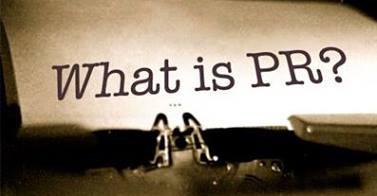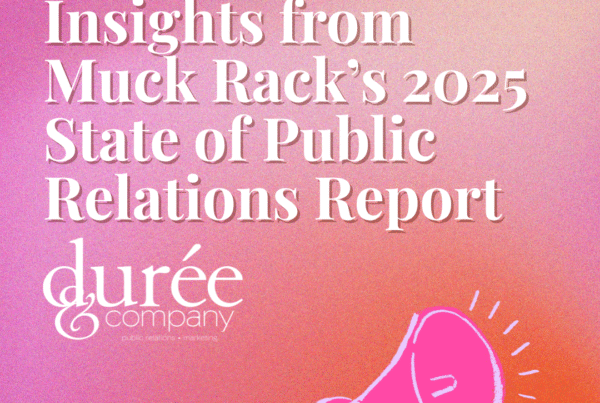
 In PR, as in most of life, you have a very small window of time to get your point across. People are busy, and editors are people, so you get where we are going with this. In the event that you cannot call the team at Durée & Company, or you simply want to walk a few feet in our heels, following are five tips for talking to the media.
In PR, as in most of life, you have a very small window of time to get your point across. People are busy, and editors are people, so you get where we are going with this. In the event that you cannot call the team at Durée & Company, or you simply want to walk a few feet in our heels, following are five tips for talking to the media.
1. Get to the point.
Don’t waste time at the beginning of a call. Your first impression is very important, and many editors or reporters will make up their minds before they even say a word.
Although you can practice what to say beforehand, the person on the other end of the phone will not have your “script” and may not follow along. Instead, bullet out the most important points you want to make and try not to be too nervous or talk too fast. If you’re reaching out in an email, summarize your pitch in the subject line. That way, the recipient can determine his or her interest right away.
2. Do your research.
Research not only the outlet you’re pitching, but also the writer’s area of interest. Know his style to make sure that your pitch is a good match. For example, does he cover fashion or entertainment or business? Do he care about mass retail or boutique designers, local artists or major festivals, banking versus tourism? Is he funny or serious? It never hurts to let him know that you read his coverage, even if you just started reading it last week. (You can leave that part out.)
3. Have a clear message.
When you have a writer or editor on the phone, it’s not a good time to give her everything you’ve got for fear you’ll never speak to her again. Be clear, be specific and be ready. If she has questions, answer her with as much detail as you can. If she wants an interview, be ready to coordinate it. If she wants photos, have high-resolution images available to send. And if you don’t have any of this, be prepared to find it or make it happen quickly, as in within 24 hours. Nothing is more annoying than setting up a great pitch and being unable to follow through.
4. Be patient.
After you’ve given it your best shot, don’t expect an agreement right away. Successful pitching needs great timing to turn into a successful placement. The writer may not be working on a story with your information for a few months, or he may need to fill a space immediately. Your pitch might end up being part of a larger story or a short brief. This call is not always yours to make, but you can be patient and helpful, giving the writer everything he needs to get your information in. In the end, great pitching leads to a good relationship, in which you can call back on friendlier terms. Also, be prepared to explain this process to your boss.
5. Know when to push or back off.
We just mentioned that word, “relationship.” It’s so important when pitching, and why our clients rely on Durée & Company. Our solid relationships with editors, reporters, bloggers, producers, photographers and columnists mean we know when to push, insist, follow up and touch base versus simply backing off. Bad timing, short deadlines, competitive stories or even vacations can waylay a great pitch. Where someone new at PR may get silence, our team will get a “not now and here’s why…” conversation.
So our number one tip for pitching media – call Durée & Company.








